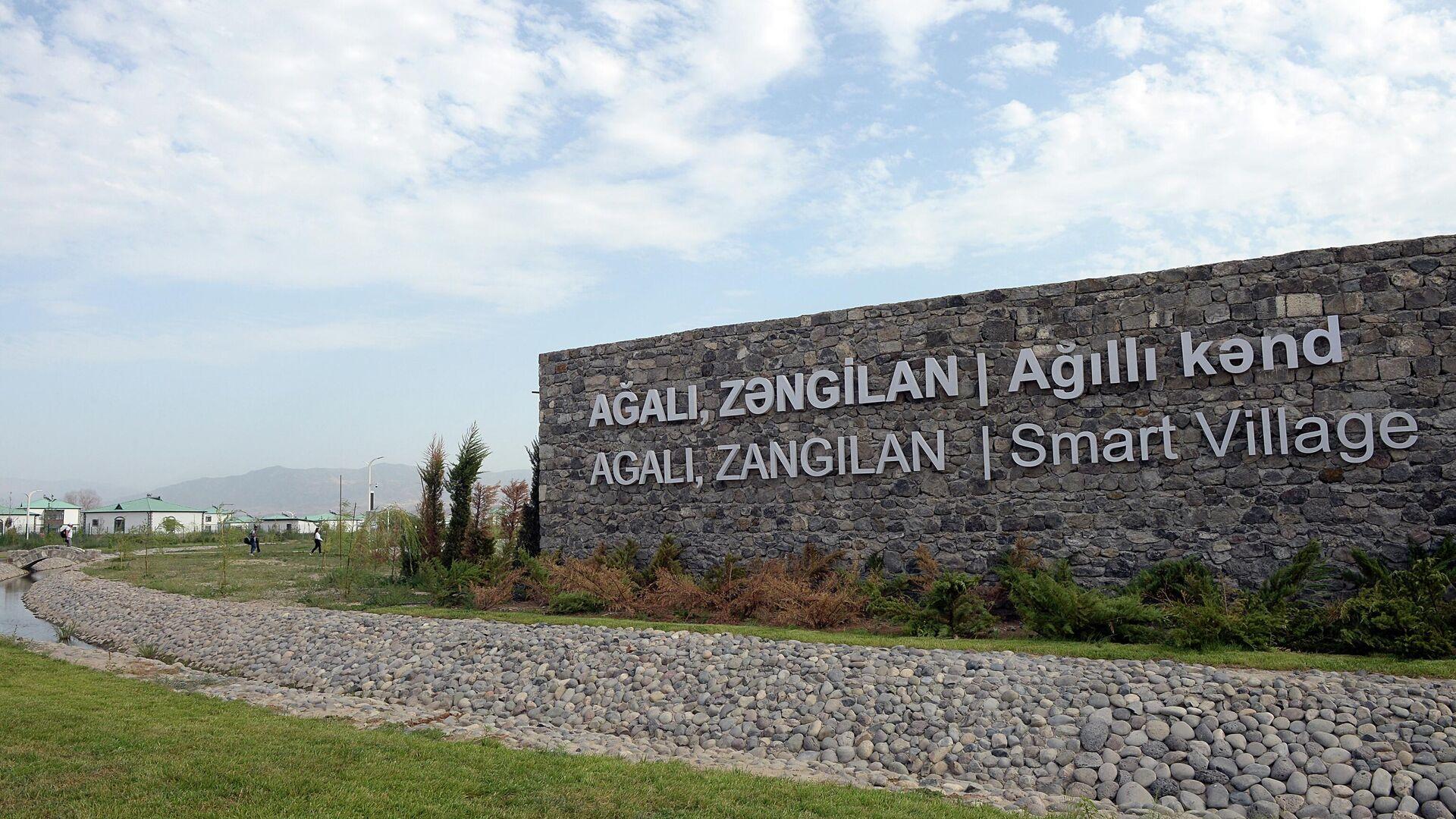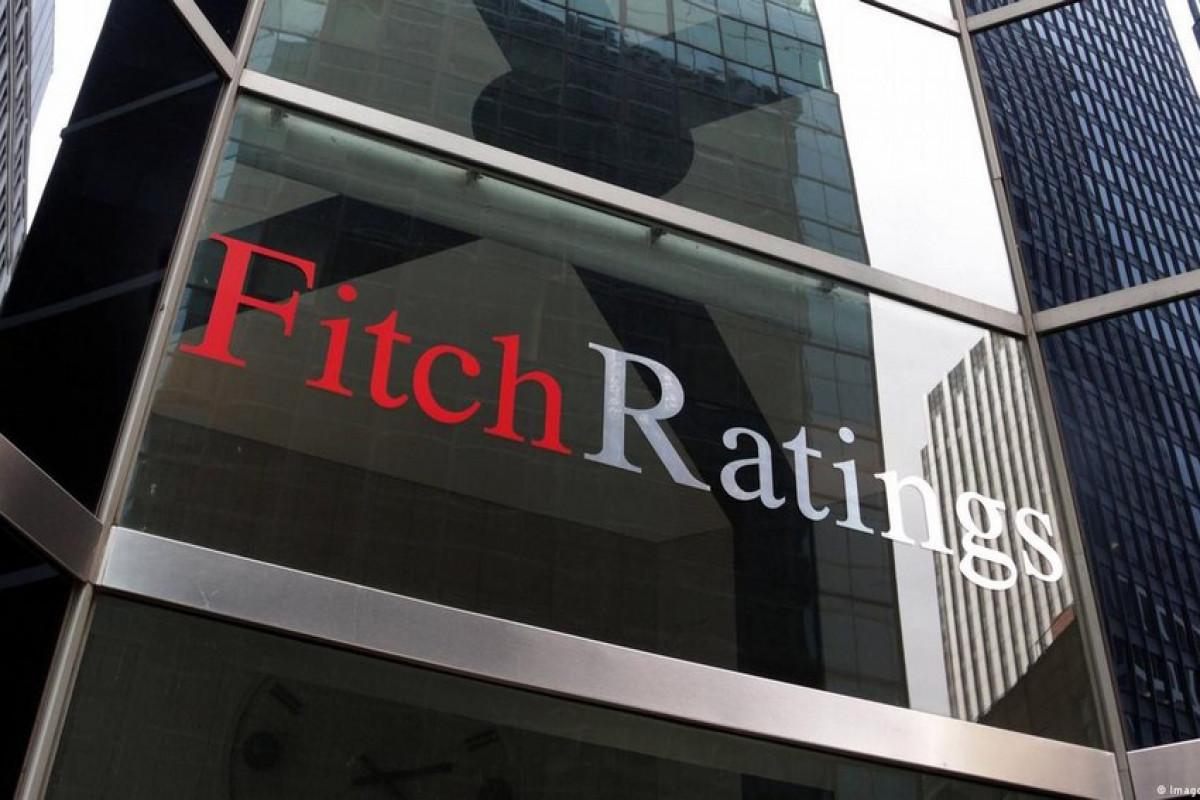Azerbaijani president emphasises stability, reforms, development agenda in key speech Review by Caliber.Az
Independent foreign policy of a strong state, highly competitive economy and green energy, tireless efforts to reintegrate the Karabakh region and implement the first phase of the Great Return Program - these strategic vectors were identified as long-term priorities of Azerbaijan's development at the inauguration ceremony of the head of state.
In his speech, President Ilham Aliyev emphasized the dynamic development of the non-oil sector and successful gas strategy, which together with low state debt and growing gold and foreign currency reserves guarantee the sustainability of socio-economic development and consistent modernization of the country.
The most important event in the history of independent Azerbaijan is the full restoration of territorial integrity and ensuring sovereign rights over the entire territory of our country.
“Among the promises I made, first of all, was certainly the restoration of the territorial integrity of our country. At that time and in the years that followed, including 2018, during a swearing-in ceremony, I said from this lectern that the Armenia-Azerbaijan conflict should be resolved only within the framework of Azerbaijan’s territorial integrity, that the people of Azerbaijan would never tolerate the creation of a second Armenian state on our territory and that we would liberate our native lands at any cost. Only two and a half years passed from that day, and the people of Azerbaijan united like a fist and liberated a large part of our lands as a result of the Patriotic War. More than 300 cities and villages were liberated, including the city of Shusha, our cultural capital, from the invaders. We restored historical justice by shedding blood and giving martyrs,” President Ilham Aliyev said at the inauguration ceremony.
Today, when our lands have been completely liberated from the remnants of the occupation regime, the key task of the state is to speed up the demining activities, restoration of infrastructure and housing in towns and villages, to ensure the earliest possible return of former IDPs to their homes. According to the head of state, high rates of restoration of the Karabakh and East Zangezur economic regions and the scale of the work done in this field amaze every unbiased foreign guest visiting the liberated lands.
He emphasized that there is probably no other case in history when reconstruction activities are carried out with such speed after such large-scale destruction and mining of territories. Already after the end of hostilities mines have taken lives or caused serious damage to health of more than 300 people. The President of Azerbaijan emphasized that the demining process continues, 120,000 hectares of territory have been cleared of unexploded ordnance and mines, but the mined area is much larger.

“Despite all this, the process of returning the former IDPs to their ancestral lands is going on successfully. To date, approximately 5,400 IDPs have already been returned and settled in five settlements. IDPs will return to at least 20 settlements this year. Our plan is to settle 20,000 former IDPs in five cities and 15 villages by the end of the year,” Aliyev said.
He noted that master plans of more than 100 towns and villages have been prepared and approved, construction activities have already started in many of them: social infrastructure - hospitals, schools, sports facilities, infrastructure facilities, including roads, more than 130 tunnels and bridges - 40 tunnels and 90 bridges are being formed.
All electric power facilities have been restored, railroads are being built, two international airports have been opened in Fuzuli and Zangilan, and the third one will be opened in Lachin. Today, construction activities are most intensive in Aghdam, Shusha, towns and villages of Lachin, Fuzuli and Zangilan districts, where significant results have been achieved in the realization of the concept of "smart city" and "smart village", formation of modern agrarian-industrial clusters, etc.
“Of course, new houses will be built for the displaced, residences complying with modern urban planning requirements will be constructed, and the historical appearance of our cities will be restored,” the head of state noted.
According to the data of the Ministry of Finance, AZN 9.7 billion ($5.7 billion) will be allocated from the state budget for the revival of Karabakh from 2020 to 2023. It should be noted that the state undertakes all the expenses for revival within the framework of the I State Program of Great Return, and in 2024-2026 it is planned to attract another AZN 10.5 billion ($6.1 billion) of budget funds for the reconstruction and revival of the liberated lands, mainly for the construction of housing and creation of necessary conditions for the return of about 140,000 families.
It goes without saying that Azerbaijan had to have a strong economic base to finance reconstruction works on such a scale. Its formation has been growing over the past 20 years: the revenues received from the implementation of oil contracts were directed to the development of transport and logistics infrastructure, modernization of petrochemicals, construction of export-oriented agricultural parks, industrial zones and neighbourhoods, as well as support for startups, IT-companies, and digitalization of the economy in general.
Thanks to the diversified economy, Azerbaijan has confidently overcome a number of crises in recent years, and as the head of state noted, the results of January this year are quite encouraging: thus, the country's GDP increased by 5 per cent, and in the non-oil sector - by more than 12 per cent.

"For comparison, I can say that our gross domestic product in 2003 was 7 billion dollars, whereas according to the results of last year, this figure is at 72 billion dollars. In other words, this is the main indicator of our economic development in 20 years. Our foreign exchange reserves in 2003 were 1.6 billion dollars, today they already constitute 69.5 billion dollars," President Ilham Aliyev noted, emphasizing that these figures are the main indicator of the development of the national economy for twenty years and one of the main factors ensuring our financial independence.
The stability of the domestic economy is also evidenced by the low level of public external debt: it has fallen to $6.4 billion, which is less than 9 per cent of our GDP.
“In developed countries, this number is at 100 per cent, maybe at 140 per cent, and we have it at less than 9 per cent. So what does this mean? These are indicators of our sound financial system, which allows us the opportunity to conduct an independent policy,” the head of state noted, emphasizing that among the factors ensuring the economic and financial independence is the high level of gold and foreign exchange reserves of the republic.
If in 2003 Azerbaijan's foreign currency reserves amounted to $1.6 billion, then after twenty years their volumes have increased manifold and today their volumes have reached $69.5 billion.
In order to maintain the sustainability of the country's export income, work will continue in the field of traditional fuels - in the oil and gas sector, the head of state said: “Work is underway on stabilizing oil production, I think there will be results in the near future. We need sustainable oil production, and we have set this task before the investors. There have been certain points of concern and these issues are due to be addressed through business contacts. Regarding natural gas. We are already exporting natural gas to eight countries. The demand is greater, first of all, of course, from the European Union. More and more people are asking us for help. These are the requests being made to us. And we, as a reliable partner, are always ready to help those in need.”
In the future, Azerbaijan's export geography will further expand, naturally, in the European direction, for which our new resource base will be utilized.
“After the Shah Deniz field, first gas has been produced from the Absheron gas-condensate field, our second biggest field, and we will probably start the second stage of development of this field in the near future. Gas production from deep reservoirs of the Azeri-Chirag-Guneshli field is planned next year. This will increase our resource base. In addition to that, there are proposals from many foreign investors to start production from Umid, Babek, Shafag, Asiman, Garabagh oil and gas-condensate fields,” Aliyev emphasized.
While increasing the extraction of fossil resources, at the same time Azerbaijan has accelerated the development of the renewable energy sources (RES) sector: in particular, a "green" energy zone is being formed in Karabakh, a dozen small HPPs have been reconstructed, and solar and wind power plants will be established there in the near future. Similar steps are being taken in the Nakhchivan Autonomous Republic, where solar power plants are being built and the NAR-Türkiye-Europe energy hub is being formed.
For the same purpose, preparations for laying the Black Sea Energy submarine electric cable under the Black Sea have begun: this energy line with a capacity of 1000 MW is designed to supply electricity generated in the RES segment from Azerbaijan to Europe. The next step will be to attract foreign investments for the development of the Caspian Sea wind energy potential, production of "green" hydrogen, etc.
According to the President of Azerbaijan, the republic is also at the forefront in the development of "green" energy: according to plans, by the end of 2030, generating capacity in the RES sector, mainly solar, wind and hydroelectric power plants will reach 5,000 MW.
"The figure I voiced is quite realistic and will be achieved on the basis of contracts already signed. And the protocols of intentions speak about an even higher figure - about 10,000 megawatts. Thus, we will be able to export a large amount of our natural gas, which we will save," the head of state said, emphasizing that by doing so the country will also contribute to addressing climate change issues, especially considering that this year Azerbaijan will host COP29 - the largest international climate conference.
It is particularly noteworthy that the steadily developing economy, stable finances and growing state budget revenues over the past twenty years have contributed to the strengthening of the state policy to support vulnerable segments of the population. This trend has been a cornerstone of Azerbaijani President Ilham Aliyev's political course for many years in a row: it should be recalled that in 2019-2021 alone, Azerbaijan adopted about 900 legal acts aimed at improving the social well-being of the country's four million citizens and allocated an additional AZN 6 billion ($3.5 billion) for these reforms.
Despite high inflation, huge expenditures on defence and the revival of the Karabakh region, the fourth social package was adopted last January at the initiative of the head of state, increasing the level of minimum pensions, salaries and other social benefits.
As the head of state noted, the social protection of the families of martyrs and disabled war veterans has been significantly strengthened: "I can say that 14.800 private houses or apartments have been provided to citizens of this category by the state, and these works will be continued in the current and next years to provide this category with 100 per cent housing".
In general, the measures taken in this area provided additional social benefits for about 1.9 million people: thus, from 2019, the minimum wage was increased 2.7 times from AZN 130 ($76) to AZN 345 ($202), and the minimum pension was increased 2.5 times from AZN 110 ($64) to AZN 280 ($264). Social programs have been identified as a priority direction of the state budget in 2024 as well. About two-thirds of the budget expenditure part is directed for these purposes, the amount of AZN 15.773 billion ($9.2 billion), thus the growth of 47 per cent in the segment of social expenditures compared to the previous year has been ensured.
"In 2003, our minimum wage was 9 manats ($5.2) – many probably don’t remember that. Now it is 345 manats ($202). Of course, this is not enough, but the dynamics are there and will be continued. The minimum pension was 20 manats ($11.7) in 2003. Today it has reached 280 manats ($164). The average pension is more than 500 manats ($294). The average salary is 940 manats ($553)," the head of state said.
“We must, of course, continue our work on poverty and unemployment. Poverty is at the level of 5 per cent in Azerbaijan. In 2003, it was about 50 percent. Efforts to address unemployment should be consistent to maintain it at a low level," he added.
The president also recalled that Azerbaijan's population has grown by 3 million since independence, and unemployment is usually a serious problem in countries with growing population, including ours: "We need to create tens of thousands of new jobs every year, and for this purpose, along with domestic resources, it is necessary to attract foreign investment. Reforms carried out in the economic sphere have already created a completely new investment climate in Azerbaijan, and if in previous years investments were invested more in the oil and gas sector, today investments in the non-oil sector amount to billions of dollars".

The investment policy is being improved and the Competition Code has recently been approved, measures are being taken to improve the competitive environment, anti-monopoly legislation has been strengthened, all of which will improve the business environment, attracting international capital.
According to President Ilham Aliyev, the most important driver for attracting investments for many years to come will undoubtedly be Karabakh and Eastern Zangezur, which will become a new point of support for the republic's economic development: projects implemented in these economic areas, both in the agricultural sector and in the field of renewable energy, tourism will provide great support to the non-oil sector as a whole.
According to the head of state, no less important driver of growth will be the sphere of transport and logistics: " Our advantage is that we have implemented all the necessary infrastructure projects in the Caspian Sea – the railway infrastructure, highways, seaport, shipyard, which is working at full capacity today. When that plant was first put into operation, orders provided it with full workload".
All transport infrastructure in Azerbaijan is in working condition, and today the country is perceived as a transportation hub between West and East, North and South. Azerbaijan is open to cooperation with all friendly countries, providing its transit potential, and of course, the republic receives both economic and political dividends from this.








